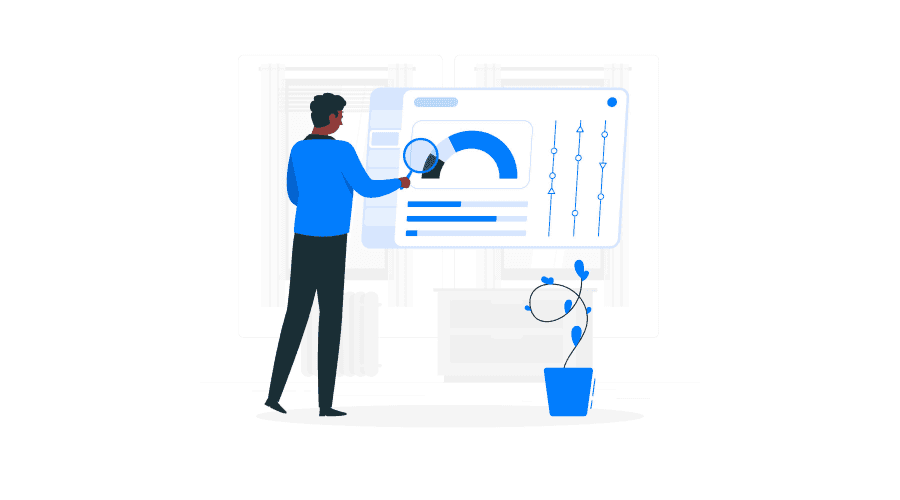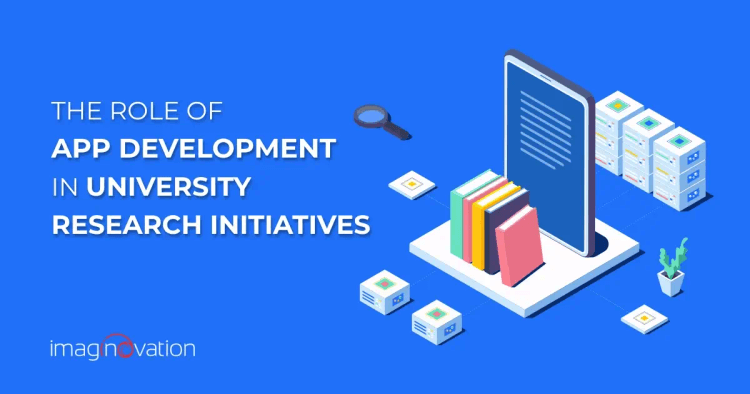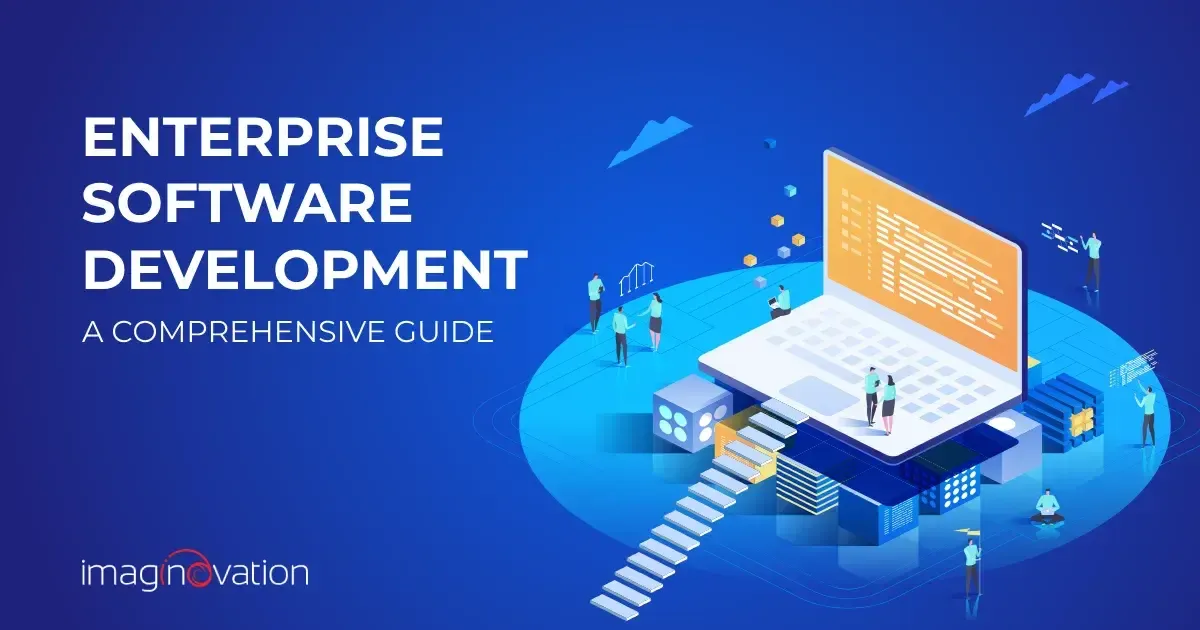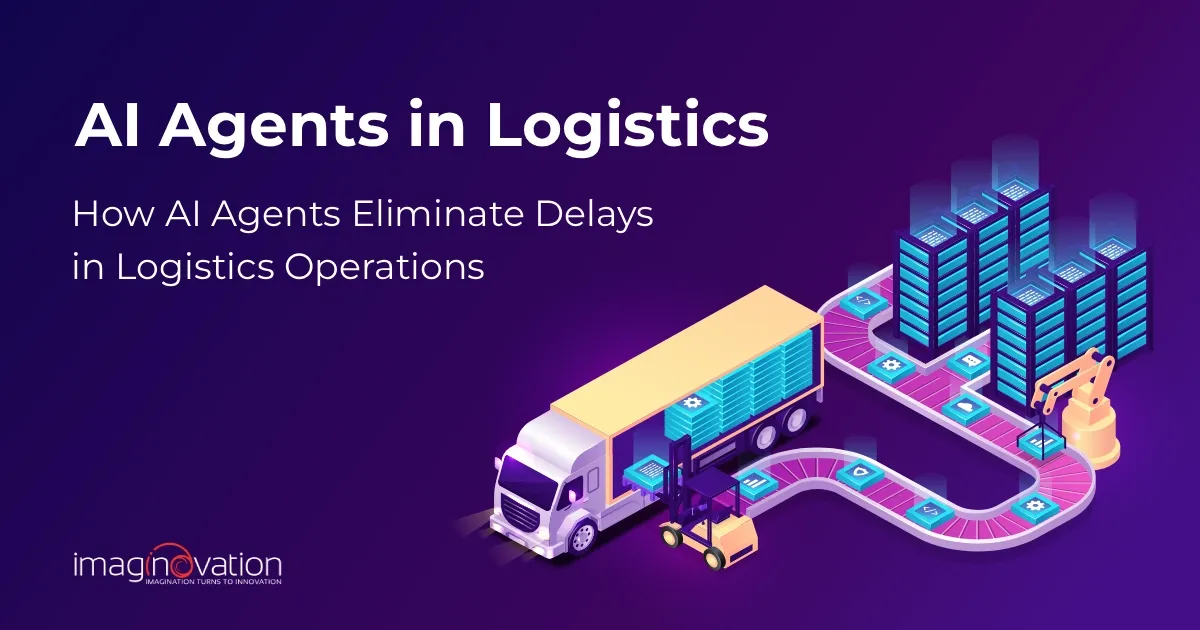To estimate the cost of building a website or an app, use our app cost calculator tool.
In the dynamic landscape of academia, the role of app development in university research initiatives works as a powerful catalyst for progress. As universities strive to address challenges, academic research apps will continue to act as vital tools. These digital marvels are shaping the very fabric of university research initiatives.
Researchers with smartphones are tapping into the power of apps, pushing the boundaries of human knowledge. Moreover, as digital transformation accelerates, researchers can access several apps that can simplify workflows and facilitate information sharing. These apps help collect data, conduct experiments, and collaborate across disciplines effortlessly.
If you are wondering about key types of research apps, advantages, and challenges, tag along! Let's explore the various facets of app development in university research.
The Significance of App Development in Academic Research
In the realm of university research, app development is a powerful tool. It goes beyond creating the next social media craze. It's using technology to push the boundaries of research and make scientific discovery a more collaborative and accessible process.
App development within the context of university research encompasses designing, coding, testing, and deploying applications tailored to meet the specific needs of researchers, their projects, and the communities they engage with. These apps can serve a multitude of purposes, including data collection, experimental prototyping, collaboration facilitation, and knowledge dissemination.
In essence, app development in university research involves harnessing the power of technology to streamline processes, improve efficiency, and ultimately advance the pursuit of knowledge across diverse fields of study.
Let’s look at some exciting statistics—according to a research study, 85% of participants used mobile apps for research purposes. Further, the researchers shared that they used mobile apps for the storage and sharing of documents, searching, and note-taking.
Some mobile apps used for research according to the study included Dropbox, OneDrive, Evernote, EndNote, Notability, and Fulcrum. The numbers highlight how harnessing the capabilities of mobile technology is essential today.
Moreover, app development in university research is constantly evolving. Thus, app development is not just about building tools, but exploring new technologies and ensuring responsible practices to further scientific exploration and discovery. Let’s look at the impact.
Efficiency:
- Streamlined data collection: Apps eliminate the need for paper forms and bulky equipment. With apps for surveys, real-time field data collection (e.g., biology, ecology), or sensor data gathering (e.g., environmental science), it can help with effective data collection.
- Automated data analysis: Apps designed to perform basic data analysis tasks on collected data, save researchers valuable time, and minimize manual work.
- Improved organization and accessibility: Research data and protocols can be stored and accessed within a centralized app, promoting better organization and reducing the time spent searching for information.
Productivity:
- Increased participation rates: Gamified apps can incentivize participation in research projects through points, badges, or leaderboards.
- Enhanced collaboration: Secure data-sharing apps allow researchers to collaborate seamlessly within teams or across institutions. Real-time data exchange and communication through the app streamline the research workflow.
- Remote research capabilities: Apps can facilitate remote data collection and analysis. Researchers can collaborate with international colleagues or access data from geographically dispersed locations, boosting overall productivity.
Scalability:
- Standardized data collection: Apps can enforce consistent data collection methods, ensuring data quality, and facilitating large-scale research projects that require data from multiple sources.
- Reusable tools: Well-designed research apps can be adapted for future projects within the same field or even repurposed for entirely new research areas, saving development time and resources.
- Cloud-Based data storage: Leveraging cloud storage within research apps allows for data scalability. Large datasets can be easily stored, accessed, and analyzed, facilitating large-scale research initiatives.
Overall, app development within university research offers a transformative approach. By streamlining workflows, boosting collaboration, and facilitating data collection at scale, universities can significantly enhance the efficiency, productivity, and scalability of research, ultimately accelerating scientific discovery and progress.
Key Types of Research Apps in Academia
Academic researchers can use apps designed to streamline workflows, improve organization, and facilitate collaboration. Let's explore some of the most common types of apps developed for academic research:
1. Data Collection Apps
These apps assist researchers in gathering data through surveys, questionnaires, or experimental tasks. They can include features like customizable forms, multimedia input, and offline data collection capabilities.
The apps offer researchers the flexibility and convenience to design and implement surveys, collect data from diverse sources, and analyze the results efficiently, thereby facilitating various types of academic research studies.
Here are some examples of data collection apps commonly used in academic research: REDCap (Research Electronic Data Capture), Qualtrics, Google Forms, SurveyCTO, and LimeSurvey.
2. Analytical Tools
Analytical tools play a crucial role in academic research, assisting researchers in analyzing data, deriving insights, and making informed decisions. Let's look at some analytical tool apps commonly used in academic research: SPSS (Statistical Package for the Social Sciences), MATLAB, and Stata.

3. Educational and Dissemination Apps
Educational and dissemination apps can be used to share research findings with a wider audience, educate the public about scientific concepts, and even collect data for research projects. Let's look at some educational and dissemination apps in academic research:
- Open access publishing platforms: These platforms allow researchers to publish their work freely online, making it accessible to a wider audience than traditional academic journals. Examples of popular open-access publishing platforms include the Public Library of Science (PLOS) and the Directory of Open Access Journals (DOAJ).
- Science communication apps: There are several apps specifically designed to help researchers communicate their science to the public. Examples of popular science communication apps include SciComm and Explain Everything.
- Educational games: Games can be a fun and engaging way to teach people about scientific concepts. Some examples include Codebreaker, Dinosaur Disease, Eyewire, and Citizen Science Apps.
4. Reference Management Apps
Reference management apps are essential tools for academics and researchers to organize, store, and cite bibliographic references. Here are some examples of reference management apps, including Zotero, Mendeley, EndNote, and RefWorks.
5. Literature Search and Discovery Apps
Literature search and discovery apps are essential tools for researchers to find relevant academic literature and stay updated with the latest research in their fields. Here are some examples of such apps: PubMed, Scopus, JSTOR, and arXiv.
6. Simulation and Modeling Apps
Simulation and modeling apps are valuable tools for researchers and professionals in various fields to simulate real-world phenomena, analyze systems, and make predictions. Here are some examples of such apps: MATLAB/Simulink, COMSOL Multiphysics, SimScale, and AnyLogic.
Advantages of Integrating App Development in University Research
University research can reap a wealth of benefits by embracing a variety of apps. These go beyond simple convenience, offering a significant boost to efficiency, collaboration, and communication throughout the research process. Let’s look at some key advantages.
Enhanced Organization and Efficiency
Academic researchers look out for streamlined literature management and reference management apps like Mendeley and Zotero, which help keep research materials like articles and books meticulously organized. Moreover, automatic citation and bibliography generation in various styles saves countless hours and ensures consistent formatting.
Yet another facet is efficient note-taking and Evernote and OneNote help with capturing and organizing ideas, observations, and experiment details effortlessly. Plus, collaboration features enable real-time sharing and co-creation within the research teams, fostering a dynamic research environment.
Improved Data Collection and Analysis
Data collection and analyzing data to get deep insights is critical for academic research. Data collection apps like REDCap and SurveyMonkey can help transform smartphones or tablets into powerful data collection tools. Surveys, experiments, and interviews can be conducted efficiently, with data directly captured on mobile devices.
Furthermore, statistical analysis apps like SPSS and R are equipped with advanced tools to analyze your research data. Thus, it is easy to go beyond basic calculations and delve into complex statistical techniques to describe, explore, and draw insightful conclusions from your findings.
Effective Collaboration and Communication
When it comes to effective collaboration, project management apps like Trello and Asana become the command center for any research project. It helps plan, organize, and track progress seamlessly, with features that enable team members to collaborate effectively, share updates, and monitor the project's trajectory in real-time.
Moreover, science communication apps like SciComm and Explain Everything put powerful tools at the fingertips to create interactive infographics, quizzes, and other engaging content. The apps allow you to effectively translate complex scientific concepts for a wider audience, fostering public interest and understanding of your research.
Increased Accessibility and Broader Impact
Many research apps are available on mobile devices, granting the flexibility to access and work on research projects anytime, anywhere. This fosters continued progress even outside of traditional lab settings, maximizing research productivity.
Citizen science apps like eBird and Zooniverse leverage the power of the crowd. The public can actively participate in research projects by collecting valuable data through user-friendly apps. This expands the scope and reach of the concerned research, potentially leading to the collection of vast datasets that would be difficult to acquire through traditional means.
Increased Student and Participant engagement

Research apps can boost student and participant engagement in a variety of ways, making the research process more interesting, accessible, and collaborative. Apps incorporating game mechanics like points, badges, and leaderboards, make participation more fun and encourage friendly competition.
There are other features including simulations, polls, or virtual labs, transforming passive learning experiences into active participation. Apps can also provide participants with immediate feedback on their contributions, which can be motivating and help them stay on track. Overall, research apps can transform data collection and participant interaction from a passive chore into an active and rewarding experience.
Challenges and Considerations in Developing Research Apps
Developing research apps presents a unique set of challenges and considerations beyond those encountered in typical app development. Here are some key challenges.
Technical Complexities
- Data security and privacy: Research data is often sensitive and requires robust security measures to prevent breaches. Apps need to be built with strong encryption and access controls to ensure data privacy compliance with regulations like HIPAA and GDPR.
- Data integration and interoperability: Research often involves data from multiple sources and instruments. Ensuring seamless integration between the app and external databases or research equipment is crucial for efficient data collection and analysis.
- Scalability and performance: Research data can be voluminous. The app's architecture needs to be scalable to handle large datasets efficiently and avoid performance issues that could hinder research progress.
User-Centered Design
- Complex workflows: Research can involve intricate processes. The app's user interface (UI) needs to be intuitive and user-friendly, guiding researchers efficiently through complex workflows without sacrificing functionality.
- Diverse user needs: Research teams can be comprised of researchers with varying technical backgrounds. The app should cater to this diversity, offering customizable features and clear user guides or tutorials to ensure smooth adoption for all users.
Regulatory and Ethical Considerations
- Data ownership and usage: Clear policies regarding data ownership and usage need to be established. Informed consent from participants in data collection might be necessary, depending on the research type.
- Compliance with research ethics: The app's functionality should adhere to established research ethics guidelines to ensure responsible data collection and participant treatment.
Funding and Sustainability
- Development and maintenance costs: Developing and maintaining a research app requires ongoing investment. Funding models need to be sustainable in the long term to ensure the app's continued functionality and updates.
- Limited market appeal: Research apps often cater to a niche audience. Balancing development costs with the app's potential user base can be challenging.
Additional Considerations
- Interdisciplinary collaboration: Developing a successful research app often necessitates collaboration between researchers, app developers, and data security experts. Fostering effective communication and collaboration across these disciplines is crucial.
- Long-term support and updates: Research is a constantly evolving field. The app needs to be adaptable and receive regular updates to accommodate new research methodologies and technologies.
By carefully considering these challenges and considerations, researchers and developers can create robust, user-friendly, and secure research apps that empower researchers and accelerate scientific progress.
How Imaginovation Can Assist in Developing Research Apps
In the dynamic world of academia, crafting a custom app for research purpose could be a game-changer for universities and research organizations. Beyond being a cost-effective solution, it presents a realm of opportunities to heighten participant involvement, simplify data collection and analysis, and ultimately, drive profound research outcomes.
If you're eager to harness the transformative power of technology to reshape your research endeavors, venturing into academic research app development could be the pivotal step your institution needs to take.
Yet, embarking on such a journey can feel like navigating uncharted waters. That's where teaming up with a seasoned IT partner such as Imaginovation can make all the difference. By joining forces with experts in the field, you can streamline the development process and expedite your time-to-market. Plus, you can ensure your app is finely tuned to cater to the nuanced needs of academic research, empowering researchers and participants alike to embark on a journey of exploration and innovation.
Imaginovation specializes in custom application development. We can support universities in developing custom apps tailored to your specific research needs. Our team of expert professionals is adept at transforming ideas into robust and visually captivating mobile experiences for academic researchers.
Specializing in mobile and web development, Imaginovation crafts apps that are consistent, high-quality experiences on all devices. Moreover, we prioritize the entire user journey and we have a laser focus on user experience design where we ensure that every interaction in your app is intuitive, engaging, and user-centric.
Our focus is on providing cutting-edge technologies and strategies to employ advanced security measures to safeguard the confidentiality and integrity of your data, ensuring a robust defense against potential threats.
Elevate Your Research Capabilities with Custom App Solutions from Imaginovation
Revolutionize your university's research endeavors with cutting-edge academic research apps! If you're eager to develop a robust solution but unsure where to start, look no further.
Our team specializes in web and mobile application development, adept at unraveling the complexities of AI and other high-end technologies to craft tailored solutions perfectly suited to your needs. Each project is meticulously approached with a customized strategy, ensuring seamless integration of niche technologies to meet your exact requirements.
Collaborate closely with our award-winning team, and let us transform your vision into reality. Trust Imaginovation to be your partner in advancing academic research—contact us today!
Let's Talk.











